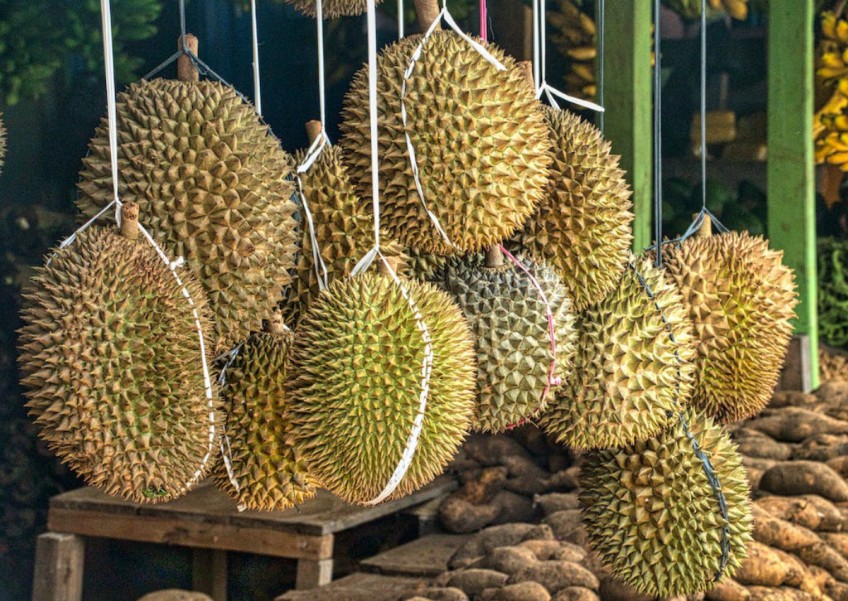China has started growing its own durians, but do they taste good?

 PUBLISHED ONAugust 03, 2023 2:10 AMByMelissa Teo
PUBLISHED ONAugust 03, 2023 2:10 AMByMelissa Teo Every durian season, people would flock to countries that harvest the fruit to indulge in its sinfully creamy flesh.
And now, there's a new place to get it from — China.
For the past four years, the Chinese have grown durian trees on Hainan Island and aim to turn durian production into one of its key industries, reported The Straits Times on March 21.
Currently, about 670 hectares in Sanya, a city in Hainan Island, is devoted to the crop.
Thanks to the city's tropical climate with mild winters, conditions are suitable for growth of the thorny fruit.
To do so, agricultural specialists from Southeast Asia reportedly helped to plant the durian crops, while Chinese specialists improved the imported seeds to better suit local weather conditions.
According to data released by Jingdong Supermarket in November 2022, the king of fruit has become more popular amongst Chinese consumers in recent years and over 60 per cent of durians in China are bought by consumers aged between 16 to 35.
In fact, in 2022, durian was China’s number one imported fruit, reaching US$4.03 billion (S$5.4 billion) and a total import volume of 825,000 tonnes, said data from the China Chamber of Commerce for Import and Export of Foodstuffs, Native Produce and Animal By-Products (CFNA).
So, do these China-grown durians taste any different from what we Singaporeans are used to?
Curious to find out, Shea Driscoll, a Hong Kong-based Singaporean journalist, tried the fruit for himself.
In an article he wrote on South China Morning Post (SCMP), Shea shared that he had "limited expectations" and "did not expect the oozing, creamy, bitter goodness of a Musang King (Mao Shan Wang)".
And the durian lived up to his low expectations.
Upon opening it, he was not hit by the familiar, pungent smell. In fact, he could barely smelly anything.
"You had to get surprisingly close to even catch a whiff of the fruit's infamous smell," he recounted.
The colour was also a little off and was more pale than the usual golden hue that we have come to know.
And the taste? Too light on the palate.
"Indeed, it tasted as mild as it smelled. While proper durian overwhelms the palate, this was but a faint facsimile – more of a reminder of what durian tastes like rather than a proper dose," Shea succinctly put.
His overall conclusion was that it felt the fruit felt more like a "prototype of a proper durian".
Shea wasn't the only one who felt this way. One of his colleagues said the durian tasted "weak", while another even said "it tastes like nothing".
But Shea also gave the China-grown fruit the benefit of doubt and said that he and his colleagues may have eaten the fruit when it was not ripe enough.
ALSO READ: American woman's first taste of durian in Singapore leaves locals impressed
melissateo@asiaone.com